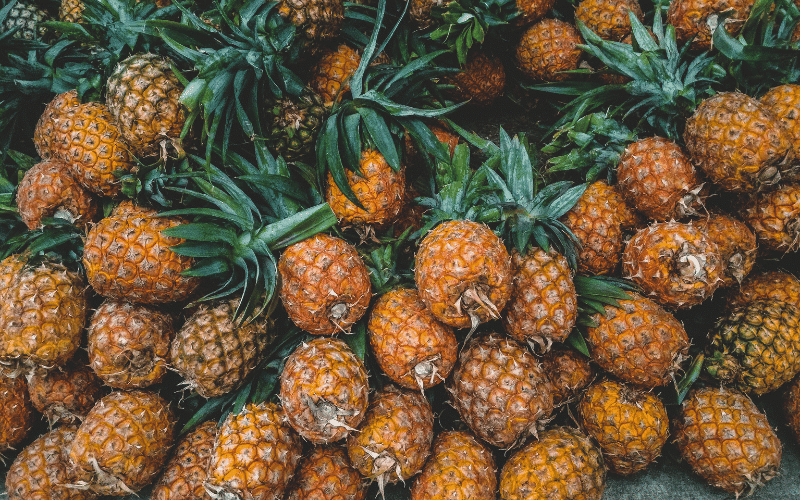10. Pineapple: The Tropical, Low-Potassium Fruit for Renal Diets

Pineapple is a delicious tropical fruit that offers a variety of health benefits, making it an excellent choice for those following a renal diet. Pineapples are low in potassium, which is crucial for individuals with kidney disease who need to manage their potassium intake. They are also rich in vitamin C, manganese, and bromelain, an enzyme that has anti-inflammatory and digestive properties, all of which can support kidney health and overall well-being.
One of the main advantages of pineapple for those with kidney disease is its bromelain content. Bromelain has been shown to reduce inflammation and help break down proteins, which can be beneficial for individuals with impaired kidney function. By incorporating pineapple into your diet, you can provide your body with the enzymes it needs to process proteins more effectively.
Pineapple is also a good source of vitamin C, a powerful antioxidant that helps protect the body from oxidative stress and inflammation. Chronic inflammation can contribute to kidney damage, so incorporating antioxidant-rich foods like pineapple into your diet can help protect your kidneys and slow the progression of kidney disease.
Another benefit of pineapple is its manganese content. Manganese is an essential mineral that plays a role in bone health, metabolism, and antioxidant function. Including manganese-rich foods like pineapple in your renal diet can help support overall health and well-being.
There are many ways to enjoy pineapple as part of your renal diet. You can eat it fresh as a snack, add it to fruit salads, or blend it into a kidney-friendly smoothie. You can also use pineapple in savory dishes, such as stir-fries or grilled dishes, to add a sweet and tangy flavor. When choosing pineapple, opt for fresh or canned varieties that are packed in their own juice, rather than syrup, to avoid added sugars.(10)